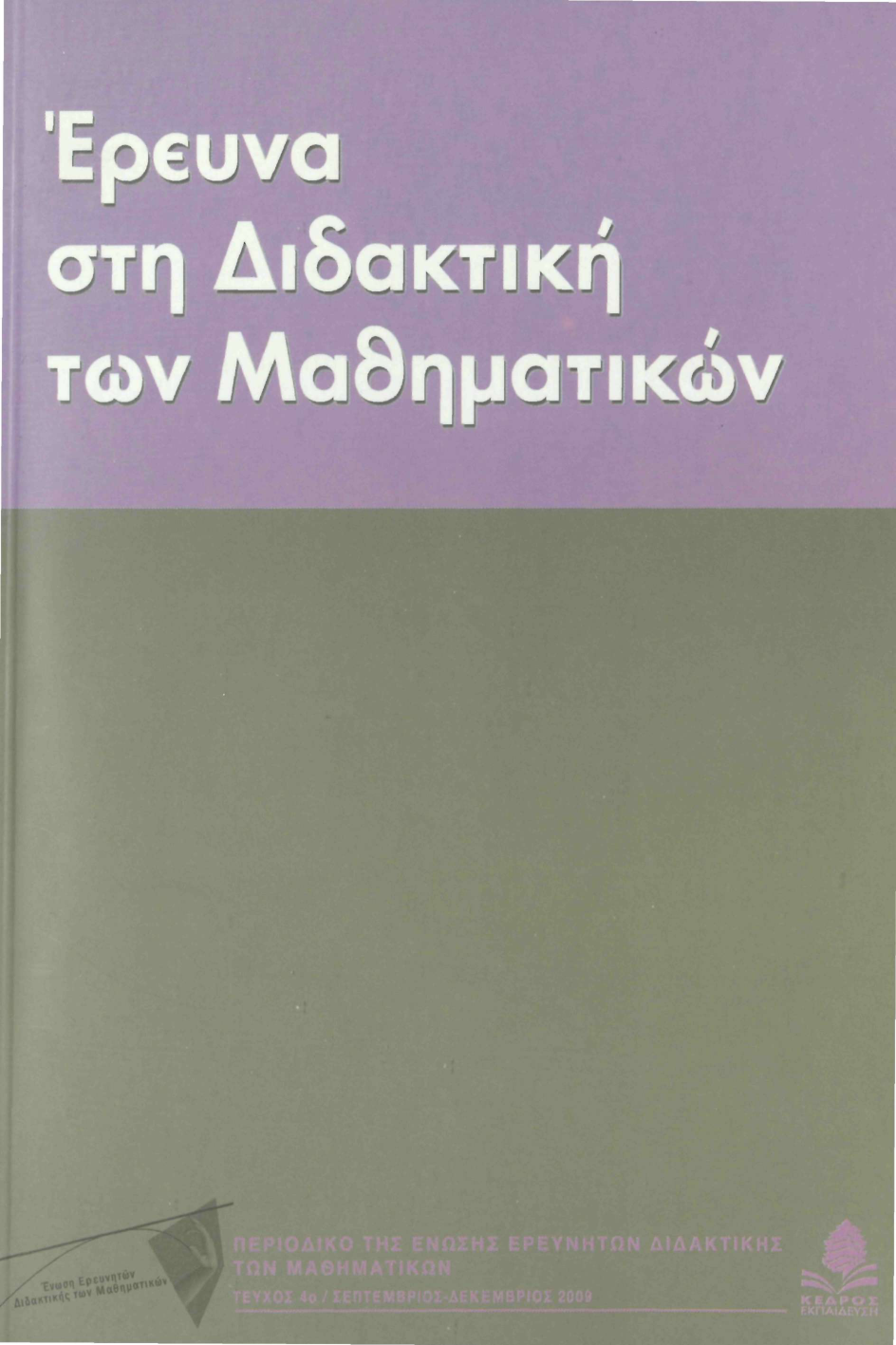MATHEMATICS EDUCATION AS A SCIENTIFIC DISCIPLINE: A EPISTEMOLOGICAL APPROACH

Abstract
During the recent decades, mathematics education (ME) is developing itself as a discipline of the field of the humanities. In this study, attempting a holistic approach of ME, we investigate researchers' positions concerning epistemological questions that frame research such as: What is the nature of knowledge that we seek and can develop about the phenomena of learning and teaching mathematics? How valid knowledge is acquired? What rules and evaluation criteria of research are adopted by the scientific community? The epistemological suppositions that direct the answers to these questions are examined through three research paradigms that have been central in ME: positivistic, interpretative and critical.
In the current phase of growth of ME, the search of transcendental truths for the phenomena and the objective of detached objectivity in the research seem to be re jected. Interpretive approaches are adopted and the multiplicity of theories, some times incompatible, becomes acceptable. Rules and evaluation criteria are adopted that consider research as persuasive argumentation.
Article Details
- How to Cite
-
Στουραΐτης (Kostas Stouraitis) Κ. (2018). MATHEMATICS EDUCATION AS A SCIENTIFIC DISCIPLINE: A EPISTEMOLOGICAL APPROACH. Research in Mathematics Education, (4), 9–37. https://doi.org/10.12681/enedim.18821
- Section
- Articles

This work is licensed under a Creative Commons Attribution 4.0 International License.
Authors who publish with this journal agree to the following terms:
Authors retain copyright and grant the journal right of first publication with the work simultaneously licensed under a Creative Commons Attribution licence that allows others to share the work with an acknowledgement of the work's authorship and initial publication in this journal.
Authors are able to enter into separate, additional contractual arrangements for the non-exclusive distribution of the journal's published version of the work (e.g. post it to an institutional repository or publish it in a book), with an acknowledgement of its initial publication in this journal.
Authors are permitted and encouraged to post their work online (preferably in institutional repositories or on their website) prior to and during the submission process, as it can lead to productive exchanges, as well as earlier and greater citation of published work (See The Effect of Open Access).


